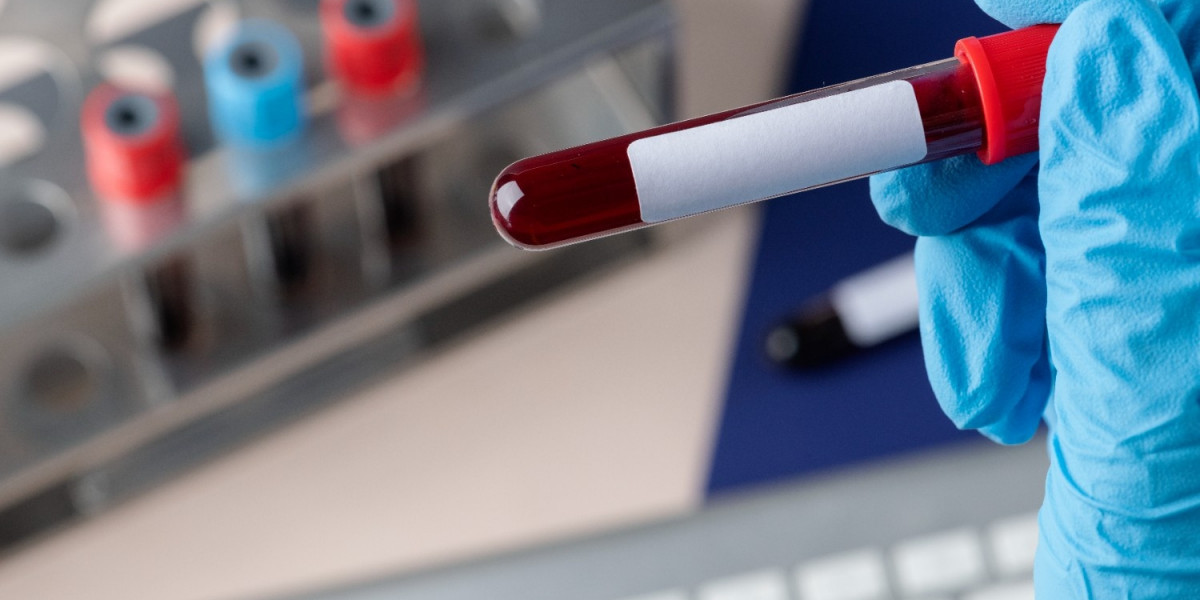Introduction
Thyroid health is crucial for maintaining overall well-being, as the thyroid gland plays a significant role in regulating hormones that affect energy, metabolism, and mood. The TSH blood test, short for Thyroid Stimulating Hormone test, is a vital diagnostic tool to assess thyroid function. Whether it’s detecting an underactive or overactive thyroid, this test provides critical insights that can help guide effective treatment and ensure optimal thyroid health.
If you're in Pune, finding a reliable center for a TSH blood test in Pune ensures accurate results and timely support for managing thyroid disorders.
What is the TSH Blood Test?
The TSH blood test measures the level of Thyroid Stimulating Hormone in the blood. Produced by the pituitary gland, TSH regulates the thyroid's production of hormones like thyroxine (T4) and triiodothyronine (T3). Abnormal TSH levels can signal an imbalance, helping healthcare providers diagnose conditions such as:
- Hypothyroidism: When the thyroid produces insufficient hormones, causing fatigue, weight gain, and depression.
- Hyperthyroidism: When the thyroid overproduces hormones, leading to anxiety, rapid heartbeat, and weight loss.
- Thyroid nodules or tumors: TSH levels may indicate more serious thyroid conditions requiring further investigation.
Symptoms That May Require a TSH Blood Test
It’s essential to monitor thyroid health, especially if you experience symptoms like:
- Unexplained fatigue or weakness
- Weight fluctuations without changes in diet or exercise
- Hair thinning or excessive hair loss
- Sensitivity to cold or heat
- Mood changes, such as anxiety or depression
- Irregular menstrual cycles or fertility issues
If you experience any of these, scheduling a TSH blood test in Pune could help identify potential thyroid imbalances early.
Why is the TSH Blood Test Important?
Early detection of thyroid conditions is key to avoiding complications and improving overall health. The TSH blood test provides:
- Accurate Diagnosis: It identifies whether the thyroid is functioning properly or requires medical intervention.
- Effective Monitoring: For those undergoing treatment for thyroid disorders, it helps monitor the effectiveness of medications and adjust doses as needed.
- Prevention of Complications: Untreated thyroid imbalances can lead to heart disease, infertility, or severe fatigue.
- Improved Quality of Life: Proper management of thyroid conditions can restore energy levels, mood stability, and overall vitality.
Preparing for a TSH Blood Test
Preparation for the test is simple but important to ensure accurate results. Follow these steps:
- Consult Your Doctor: Share any symptoms or existing health conditions with your healthcare provider before the test.
- Check Medication Guidelines: Certain medications, especially thyroid hormones or supplements, may need to be paused before the test.
- Fasting Requirements: While not always necessary, your doctor might recommend fasting to avoid interference with the results.
When booking a TSH blood test in Pune, ask the diagnostics center for specific preparation guidelines tailored to your needs.
What to Expect During the Test
The TSH blood test is quick and minimally invasive. Here’s what happens:
- A technician draws a small blood sample, typically from a vein in your arm.
- The sample is analyzed to measure TSH levels, and results are typically available within a day or two.
- The process is safe, with minor discomfort from the needle insertion.
Ensuring you choose a trusted center, like AG Diagnostics, guarantees a smooth experience and accurate results.
Interpreting TSH Blood Test Results
Understanding your TSH levels is crucial for making informed decisions about your thyroid health. Normal ranges may vary slightly, but generally:
- Normal TSH levels: 0.4 to 4.0 mIU/L
- High TSH levels: Suggest hypothyroidism or an underactive thyroid.
- Low TSH levels: Indicate hyperthyroidism or an overactive thyroid.
Your doctor will provide detailed insights based on your results and recommend further tests or treatments if needed.
Finding the Right Diagnostics Center in Pune
Choosing a reliable and well-equipped diagnostics center is essential for accurate results and personalized care. Factors to consider include:
- Reputation: Look for centers with excellent reviews and a proven track record.
- Accurate Testing: Ensure the facility uses advanced technology for precise results.
- Qualified Staff: Trained professionals guarantee a smooth testing experience.
- Convenience: Opt for centers offering quick appointments and timely results.
If you’re searching for a trustworthy provider for a TSH blood test in Pune, AG Diagnostics is an excellent choice.
Managing Thyroid Disorders Post-Testing
Once you have your results, your healthcare provider will guide you on managing thyroid conditions. Steps may include:
- Medication: Thyroid hormone replacement or anti-thyroid drugs may be prescribed.
- Lifestyle Adjustments: A balanced diet, regular exercise, and stress management support thyroid health.
- Regular Monitoring: Periodic TSH testing ensures treatment remains effective.
By following your doctor’s recommendations, you can lead a healthy, balanced life even with thyroid issues.
Conclusion
The TSH blood test is a cornerstone in diagnosing and managing thyroid disorders, offering critical insights that pave the way for better health. For individuals in Pune, accessing reliable diagnostics services ensures accurate results and effective care.
A.G Diagnostics stands out as a trusted provider, offering comprehensive testing services with precision and care. Their commitment to quality and patient-centered care makes them an excellent choice for anyone seeking a TSH blood test in Pune.









